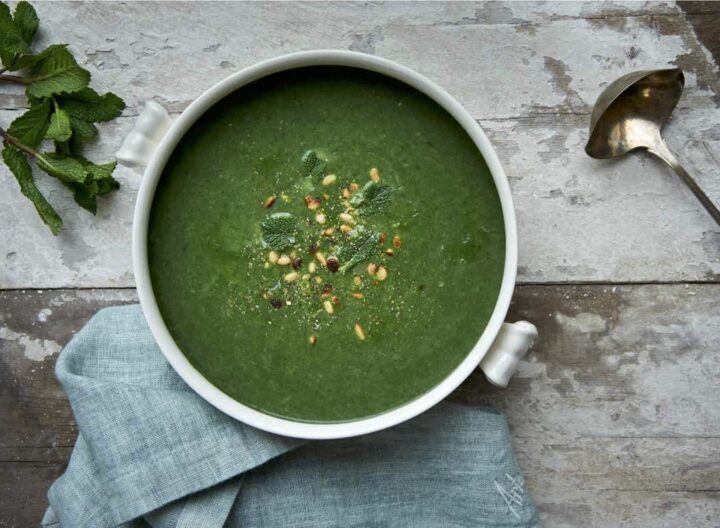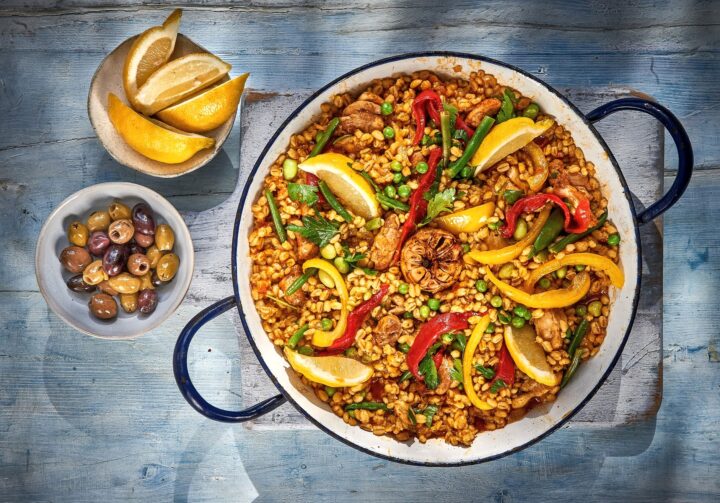The most recent Health Survey for England estimates that 28.7% of adults in England are obese and a further 35.6% are overweight but not obese.
Obesity is usually defined as having a body mass index (BMI) of 30 or above. BMI between 25 and 30 is classified as ‘overweight.’
In this month’s guest blog, nutritionist Eva Lasry-Dome, BA, MSc, explains what it really takes to lose that excess weight – and keep it off.
Being overweight or obese can have a serious impact on your health, causing diseases like type 2 diabetes, cardiovascular disease and certain types of cancer.
For several years, public health messages have urged us to “move more” and consume fewer calories to prevent obesity. This approach is misleading, however, because calorie-counting does not emphasize the quality of the food.
A nutritious home-made bean stew or a burger and white bun from a fast-food restaurant may contain similar calories but will have very different impacts on your health. Also, while being physically active offers many mental and physical health benefits and can help reduce your waistline, it is not particularly effective when it comes to weight loss.
The real answer to losing weight and keeping it off is to make certain lifestyle changes. Here are some ideas on how you can make a start.
Add a variety of fruits and vegetables to your diet
You nourish your body and mind by eating a wide variety of healthy foods, not by just eating less. Be adventurous and don’t be afraid to taste new things. Vegetables are really versatile and can be cooked or eaten in numerous ways. And remember, healthy food does not have to be bland and flavourless – try adding some fresh or dried herbs and spices to elevate the flavour. Frozen fruits and veggies are an excellent alternative to fresh and can be ready in no time. Tinned versions (in water for veggies and in their own juice for fruits) can also be a good option.

Go for whole foods most of the time
Grocery shelves offer a lot of processed and ultra processed foods. But let’s be realistic: we all rely on some convenience foods, our way of life has changed tremendously over the years – I can’t quite see myself milking a cow then waiting a month to get some cheese as my French forbears might have done!
Not all processed foods are ‘bad’ and some of them are helpful and even necessary like bread, yoghurt, cheese, nut butters or canned versions of fruits and veggies. We need to minimise ultra-processed products, though, as they contain far too many additives and are usually loaded with salt and/or sugar.
Check food labels
Most products in the UK have a traffic light colour to help people making better choices when shopping.
THE FOOD TRAFFIC LIGHT SCHEME
Drink alcohol responsibly
In the UK, the recommendation for alcohol is 14 units a week for men and women. This should be stretched out across the week, but ideally with some alcohol-free days.
Keep hydrated
Hydration is so important for good bodily function. It is recommended to drink 1.5 to 2L of water a day. Water is found in fruits and vegetables, and drinks like coffee, tea, and soup, but caffeinated drinks may dehydrate as can alcohol.

Meal routines
Establishing a regular meal routine can be helpful, stabilising blood sugars throughout the day. Try to load up your plate with vegetables or salad, include some protein such as meat, chicken, fish, eggs, beans or lentils. Use healthy fats like extra virgin olive oil and avocado, and incorporate higher fibre carbohydrates such as brown rice or sweet potatoes in moderation. Some days you will experience greater appetite than other days and that is normal. However, it is important to keep in mind portion sizes.
Might you have some ‘fasting days’ when you drastically drop your calorie intake? This is called “intermittent fasting” and can be helpful for regulating blood sugar, prevention of dementia and prevention of cancer. If you are interested in this approach, please speak to your GP or nutritionist for personalised advice beforehand.
Food diary
Some people benefit from writing down what they eat and what they are feeling at that time to identify triggers and evaluate their mood. This can reveal if you are using emotional eating as a coping mechanism. There is nothing wrong with eating according to your moods, but when it is happening regularly you may need to seek help.
Mindfulness
It takes approximately up to twenty minutes for the brain to realize you are full. Therefore, eating slowly without any distraction is helpful to enjoy and savour your food.
And finally…
Reducing stress and getting enough sleep can help you control food cravings. The good news is that eaten in moderation most types of food can fit into your diet, it’s just a question of how often and how much. And remember, it’s the quality not just the quantity that will help you reach and maintain a healthy weight.
Humans are creatures of habit. Research has shown that it takes at least three months to form a new one. So take time to implement these lifestyles changes, and above all, be kind to yourself.
Good luck!

Eva Lasry Dome is passionate about health and enjoys helping others to achieve optimum wellness. A trained nutritionist, Eva has worked with weight management programmes to educate people about healthy lifestyles and how to make lifelong changes. She has also taught nutrition and food science in high school. Eva lives in Manchester.












